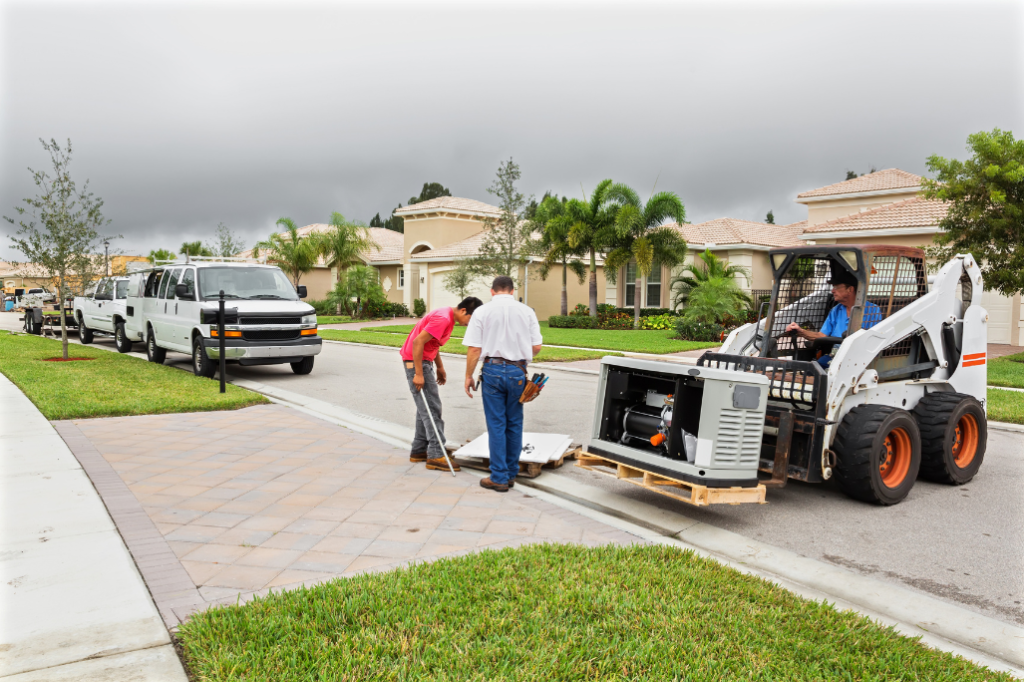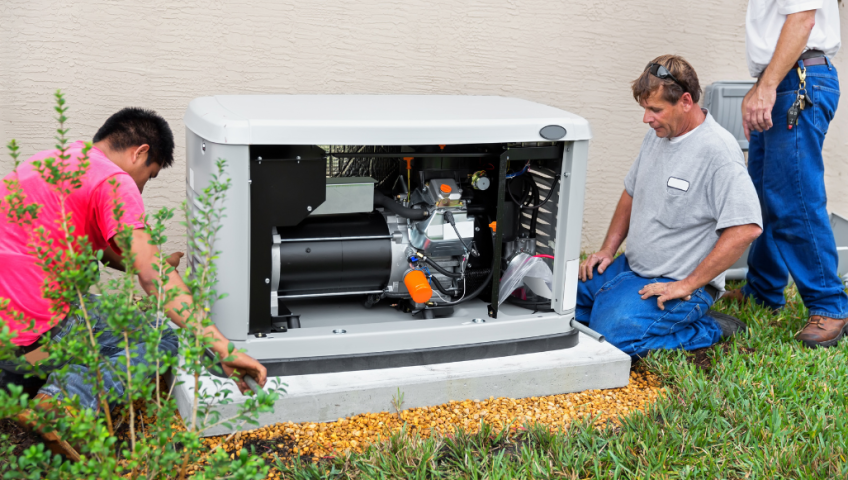As hurricane season approaches, ensuring your whole house generator is in top-notch condition becomes paramount. These storms can cause extended power outages, and a well-prepared generator can make all the difference in maintaining your home’s comfort and safety. Follow these steps to ensure your generator is ready to face the harsh weather.

Conduct a Thorough Inspection
Before the storm season begins, inspect your generator comprehensively. Check for any visible signs of wear and tear, such as frayed wires or rusted components. Examine the fuel lines for cracks and ensure all connections are secure. Don’t forget to check the oil and coolant levels. Regular inspections help identify potential issues before they become serious problems during a power outage.
Change the Oil and Filters
Maintaining your generator’s engine health is crucial. Change the oil and oil filter according to the manufacturer’s guidelines or after prolonged periods of inactivity. Fresh oil ensures smooth operation, while a clean filter prevents contaminants from damaging the engine. Don’t neglect the air filter either; a clogged filter can impede performance and efficiency.
Test the Battery
A generator’s battery is vital for starting the engine, especially in emergency situations. Test the battery voltage and charge it if necessary. Look for signs of corrosion on the terminals and clean them with a mixture of baking soda and water. If your battery is more than three years old, consider replacing it to avoid any surprises during a power outage.
Run a Full-System Test
Simulate a power outage by switching your home’s main breaker off and letting your generator take over. This test ensures that your generator can handle the load and operate smoothly under pressure. Monitor the generator for unusual noises or vibrations and check that it supplies power to all critical systems in your home.
Stock Up on Fuel
Having an adequate fuel supply is essential during hurricane season. Ensure your generator’s fuel tank is full and store extra fuel in a safe, approved container. Be aware of the fuel type your generator uses—whether it’s diesel, propane, or natural gas—and store it accordingly. Rotate your fuel stock periodically to keep it fresh and effective.
Check Safety Systems
Safety should always be a priority. Verify that your generator’s safety systems, including carbon monoxide detectors and automatic shutoff mechanisms, are functioning correctly. These systems protect your home from potential hazards such as carbon monoxide poisoning and electrical fires.
Secure Your Generator
Ensure your generator is securely anchored to its base to prevent it from being displaced by strong winds. Check that the generator’s enclosure is intact and capable of withstanding harsh weather conditions. Properly securing your generator not only protects it from damage but also ensures it remains operational during a storm.

Prepare for Hurricane Season Today
Preparing your whole house generator for hurricane season involves more than just a quick glance. It requires a detailed inspection, regular maintenance, and thoughtful planning. By following these steps, you can ensure that your generator will perform reliably when you need it most. Ready to get your generator storm-ready? Contact ROS Electric for expert maintenance and servicing. Our team of experienced technicians will ensure your generator is in optimal condition, providing you peace of mind during hurricane season.


Write a Comment